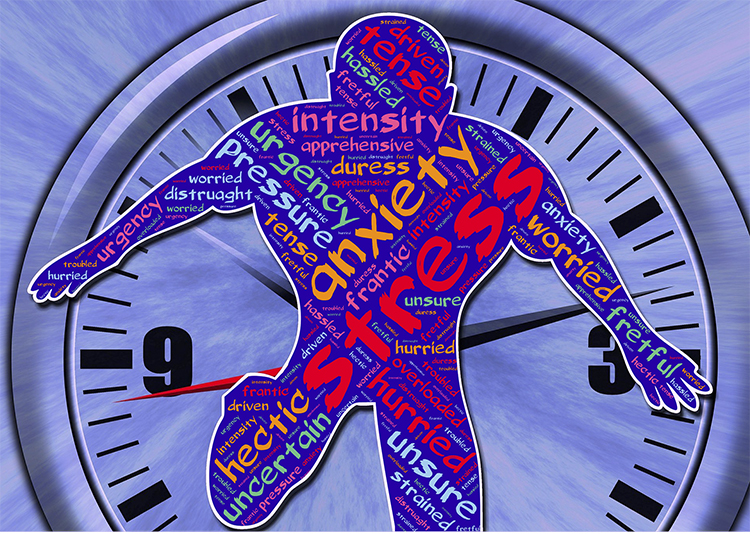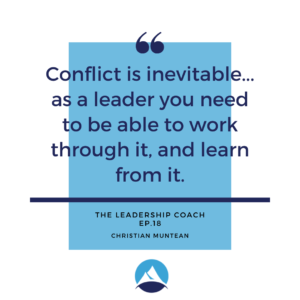4 Strategies That Will Allow You To Overcome This Crisis

 An auto dealership launched a concierge service – they’ll come to you pick up your car and service it. You don’t have to do anything except make an appointment.
An auto dealership launched a concierge service – they’ll come to you pick up your car and service it. You don’t have to do anything except make an appointment.
A gym distributed their equipment to their customers and switched to on-line group classes. Their membership has grown.
An up-scale, sit down restaurant created a take-out menu and offers delivery.
Counselors and doctors have been shoved passed their professional reservations about tele-practice and now routinely provide services over the phone or video conference.
A costume manufacturer pivoted to making masks and, unexpectedly, grew revenues.
A hotel, forced to close, is sharing its staff with a supermarket chain, who have increased staffing needs.
R&D departments are developing new intellectual property (protective wear, diagnostic equipment, etc) that immediately provides solutions in the Corona Crisis. This new IP will have broader applications and lifespans beyond this time.
Engineering firms, with employees working from home, are finding ways to increase accountability and efficiency in their work practices.
Innovative, adaptable and effective leadership will see you through
I’ve had the “benefit” of consulting through a number of regional and national recessions. While hard on most – some organizations emerge stronger for the experience.
Some organizations are led well, take care of their people and find new ways to take care of their customers. They come out of the difficult time stronger, more robust, more profitable and more effective than before going in.
Some organizations hunker down, hope to avoid the worst, wait for things to change or develop fear-based strategies. They may not come out of these times at all. If they do, they are usually much weaker, stressed and behind the curve.
Which will you be?
Here are the four strategies that any organization can and should begin right now:
1) Identify and preserve success habits: Let me use a fitness analogy. Gyms were among the first businesses to be closed by “stay-at-home” orders. As a result, many people will stop working out altogether. They allow changes to the specifics of their routine to change their entire routine. Not only that, but many will also start binge-watching Netflix and begin emotional eating.
Others will just transfer their gym routine to a home fitness program. They’ll start running, or explore calisthenics, take online fitness classes or start using all of those expensive clothes hangers for fitness again. They’ll use their at-home time to meal prep and eat even healthily than before.
You and your teams do certain things that create success. It might be that you have a terrific sale process, or the disciplined approaches to work, or creative solutions that you develop.
You might need to alter how you approach those things – but don’t get out of the habit of doing them. Find the innovative iteration of your success habits that will work right now.
What have been the key success habits of your team or business? How will you preserve those?
2) Prevent Air Bubbles: Don’t let an air bubble build up in your sales & marketing pipeline. A pipeline is a shorthand way of referring to the customer’s journey from discovering you and what you offer to eventually do business with you.
A healthy pipeline always has pressure – the movement on the front of the pipeline should create “suction” that pulls people foreword. (Testimonials, case studies, reviews, etc.) The movement at the back of the pipeline (demand, trust, relationships, demonstrations of value) should create pressure to push people forward towards a sale.
An air bubble is a gap in that process. Not only is it a gap, but it reduces the pulling and pushing pressure of your pipeline.
If you stop building and nurturing relationships with customers now and wait until “things get better” you’ll find you’ve built an air bubble.
Your customer is experiencing a disruption in their habits. Prolonged disruption means the development of new routines. Make sure those new routines include you.
Figure out how to keep working on your pipeline. Keep relationships with customers even if you need to change the nature of that relationship. Keep building trust and demonstrating value.
When things open back up – some people will be ready to jump right back into serving their customers. Others will be wondering where their customers went and when they’ll be back.
How can you continue to cultivate your relationship with your customers? What ways can you find to be present for them through this crisis?
3) New ways to provide value: “Necessity is the mother of invention.” Crisis creates a surge in need – both real and perceived. Both current and anticipated.
I began this article with a list of ways actual companies have pivoted and provided value in this crisis. Some companies found novel ways to offer the same value. Others are offering an entirely different value.
For some the pivots will be temporary, for others, they’ll spin off into an entirely new line of revenue. All of them are focused on providing value to their customers. Meeting a want or need.
Is there something new you can create and offer your customers? Is there a different way of providing an old service or product? Are there partnerships that might make sense now?
4) Stay connected to your employees: Stay connected to your people. Even if you’ve had to furlough them or lay them off.
Many are experiencing high levels of anxiety and uncertainty. It may be due to specific situations or ambient stress. Right now, there is a heightened sense of need for social connection. For many people, their workplace is their primary social network. Don’t assume that they know what you know. Or vice versa. Stay connected. Stay in communication. Provide factual information and offer empathy. See my article on communicating in a crisis.
Be there for your people:
• Express gratitude
• Constantly speak through the lens of your values and vision
• Communicate regularly and consistently
• Stay focused and to the point. People are working from home. Attention is a valuable commodity.
• Share how the business is doing, what you are doing, how they can help and what is needed. Share wins and challenges.
• Engage them in problem solving and idea generation.
• Demonstrate that you care about them and their families.
If you’ve needed to let people go but you hope to get them back – stay in regular touch. Try to meet needs if you can – even connecting them to resources in the community. There are many virtual possibilities for this for staying in touch.
Don’t assume that they’ll be there waiting for you if you stop talking to them. Demonstrate that they mean more to you than just filling a slot.
Implement these strategies
These are the key strategies that have allowed many businesses to get through tough times. Use these strategies as a framework for your decision making and you’ll make it through this. Possibly better off for the experience.
If you’d like more practical ideas on actions you can take, read this article.
Keep well,
Christian
Are you curious about the value of your company? Try my free tool: The Value Builder System
The Value Builder System™ is a 13-minute online questionnaire that evaluates your business on the eight factors that contribute more to its attractiveness and value. These factors are scored on a scale of 1-100. Businesses that score over 80 are likely to command 70%-100% higher value than others. Click here to learn more or get your free Value Builder Score.
Would you like my help for yourself, your team or board to get a clear vision of 2020? Don’t leave it to chance. Give me a call 907-522-7200 or e-mail me.
In my podcast, THE LEADERSHIP COACH, we explore effective, high impact and enjoyable leadership. We talk about personal development and the attributes that all effective leaders possess. I interview other leadership experts who share their knowledge and tips to help you build the confidence to lead and learn the habits of good decision-making.
Now Available! Ep.18 – Are You Making It Harder Than It Needs To Be?
Opportunities
Did someone send you this article? You can receive it, free, directly from me each week. Click here to sign up. You can unsubscribe at any time. I won’t feel too hurt.
Free Resource: How To Accomplish More Without Doing More is a workbook I created to walk leaders through a process of helping you own your calendar, liberate your time, and still get more done. Download it for free!
Executive and Leadership Coaching: Do you feel overwhelmed? Are you not getting the results you expect from the effort you are putting in? Do you find yourself facing similar challenges time and time again? Would you like to change specific ways of relating or reacting? If you would like to experience predictable, measurable growth Contact me.
Profitable Exit Strategy Workshop: Are you a business owner or partner? Are you over 55? Are you starting to think about exiting your business or active management in the next 3-5 years?
- Are you curious about what your business might be worth?
- Would you like to discover the specific steps you need to take to increase its value and become highly attractive to a buyer?
- Are you planning on handing it over to family or employees and you want to ensure long-term success?
If so, contact me now
Categories
Get Christian’s Newest Book: Train to Lead

Download my free 10-page eBook:
How To Accomplish More Without Doing More:
Eight Proven Strategies To Change Your Life
Discover how to save eight hours during your workweek-even if you're too busy to even think about it. The resource every maxed out executive needs.
